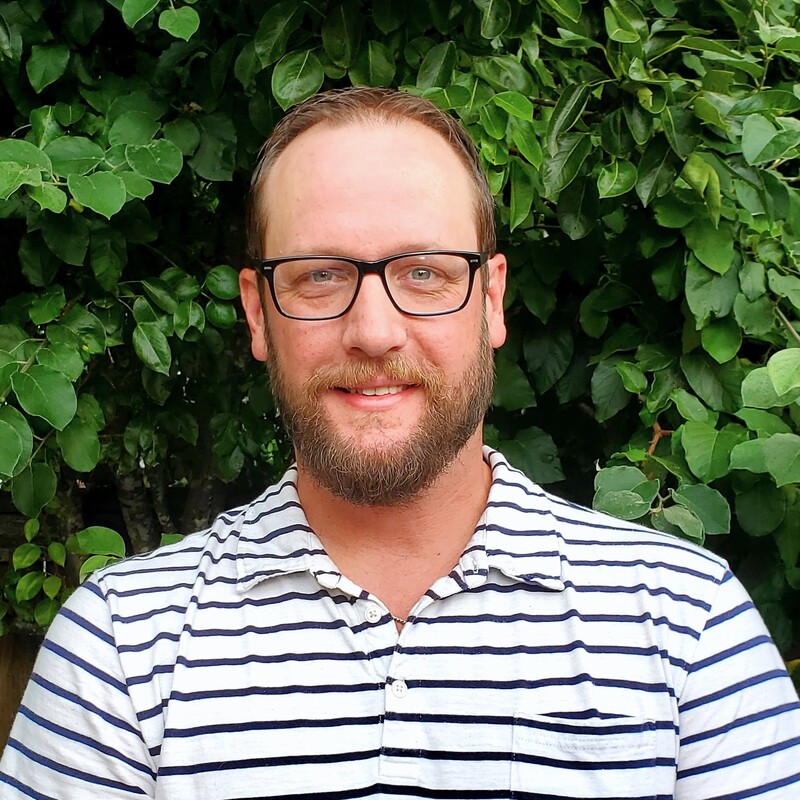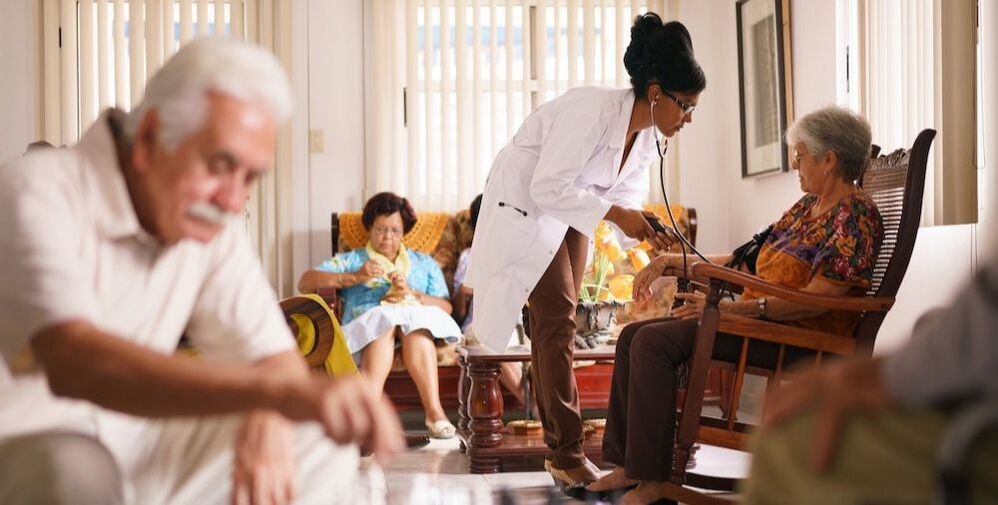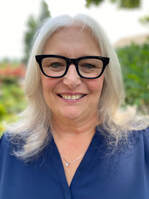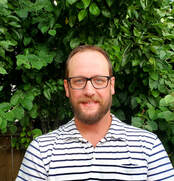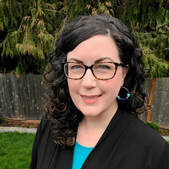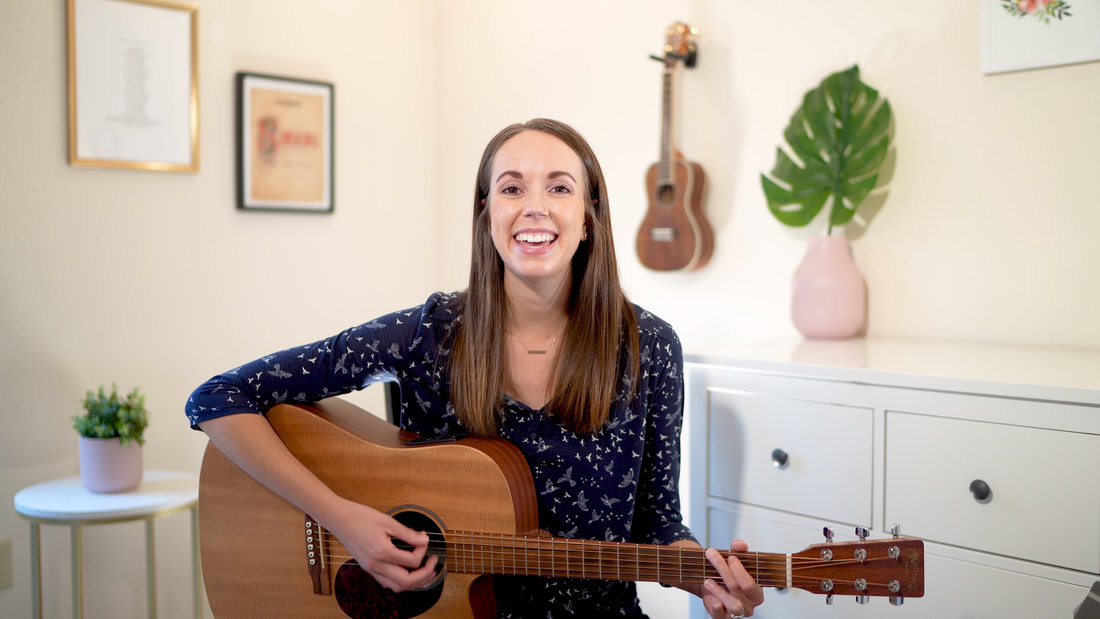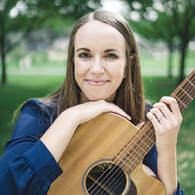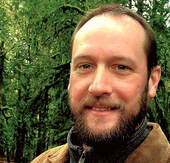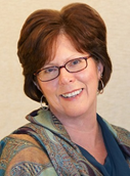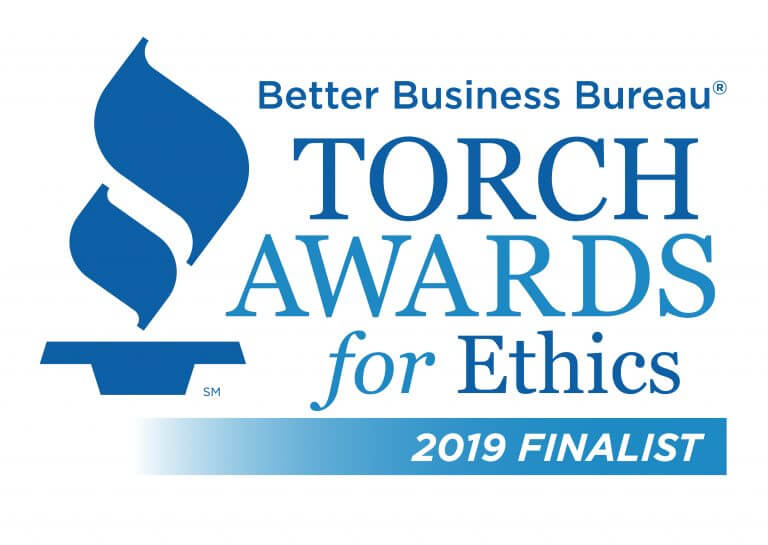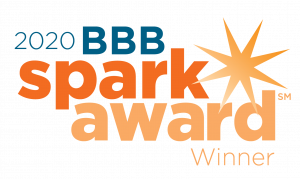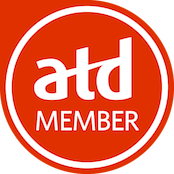|
We want to continue to highlight the work of our amazing adult foster care home providers in Oregon. Matt Gannon spent some time talking with Nelson Kabue, LPN, operator of Orchard Adult Care Home in Multnomah County. Please read below to learn more about Nelson. Tell us a bit about your background and what lead you to work in care and service. 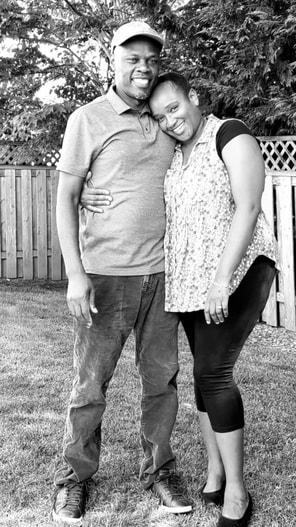 Nelson and Josephine Nelson and Josephine I relocated from Kenya in October 2012. I initially lived in Seattle, Washington. After a while, I settled down and started hustling for a job to be able to make ends meet, and I did not know much about healthcare. After some advice, I noted how as an immigrant I needed to work extra hard. One of my friends introduced me to CNA classes, but I had to come up with $500, of which I did not have as I had used all of the money processing travel documents. I ended borrowing and enrolled into a CNA class in Federal way, WA. I graduated and got a job in a skilled nursing facility home in Renton and had a second job in Federal Way. One day, my host requested me to visit one of her friend’s homes, and so I agreed and accompanied her. Once there I noticed that this family works from home at their own schedule and I was so amazed, as I was overworking myself with two jobs and no time for myself. It was then in my heart I decided this is my dream, and the idea of owning a care home was born. After a few months, I decided to relocate to Boston, Massachusetts and got a job in a skilled nursing care facility. While in Boston, I was lucky to meet the love of my life, Josephine, and I was able to share my dream with my love. Josephine supported me by encouraging and supporting me to enroll in nursing school, as she was already a nurse herself and graduated in 2017 as an LPN. I worked at a skilled rehab in Massachusetts and acquired skills like tube feeding, catheter care, wound care, diabetic management including insulin, dementia care, stroke care, and more. It was then in my heart I decided this is my dream, and the idea of owning a care home was born. Why did you decide to start your own adult care home? While working as a nurse in long-term care, I discovered that I was not able to give attention to all my patients and advocate for their needs to their doctors. This issue bothered me for a long time, as I could not feel as I was meeting their needs. This was not attaining my goal as a nurse. I felt having a care home with few clients was a noble idea, as I would be able to advocate for patients, tailor client care plans, be able to monitor clients, and communicate with doctors and get feedback in a timely manner and take action without delay. I also loved the idea of working at home and being able to apply my skills at home while still being there for my family. Tell us a bit about what you have learned running your own care home business. Having and running a care home needs a lot of dedication. Its not always easy but I love that it gives me the autonomy to meet each client’s needs immediately. I am able to provide person-centered care as I only can have five clients for whom I am able to dedicate more time to rather than when I was employed in a big facility. I have actually surprised myself in seeing that I have leadership and management skills that I doubt would have been explored had I not opened my own home. Having and running a care home needs a lot of dedication. Its not always easy but I love that it gives me the autonomy to meet each client’s needs immediately. What do you believe makes the adult foster care home model of care unique? The adult foster home model is unique because we are able to provide medical care in a homelike environment, which is quite comforting for residents. This is especially so when time comes that one has to chose a care home, or when families have to send their mom or dad to a care home, they feel comforted because the setup is just like a home. Residents are able to continue with their day-to-day activities in a homelike and safe environment where 24hr care is available. At the same time we are promoting independence safely. Residents are able to continue with their day-to-day activities in a homelike and safe environment where 24hr care is available. What do you love most about the work you do, and is there anything else you would like us to know about you? What I love most is the satisfaction I get when I see a resident move in to our home, settle in, and blend in with other residents and begin to regain some of their strength back. I love the joy and contentment I see in the faces of residents' families when they know their family member is well taken care of. Also, I am a father of two girls, ages 5 and 8 years old, and I love sports - especially soccer and basketball. Orchard Adult Care Home: A Serene Place to Call home Where Seniors and Adults with Disabilities Receive the Care and Respect they Deserve Phone: 503-618-1133 [email protected]
3 Comments
Article by guest author Valli Brunken, MBA, BSN, RN, owner of Nightingale Consulting. This year has been pivotal for several reasons related to nursing in community based care, which absolutely includes how nursing care and nursing tasks are administered in the adult foster care home (AFCH) setting. Let’s review two issues that seem to be coming up over and over as of late when I’m in the field visiting homes and speaking to care home owner-operators. LPN Practice Hours in the Care Home Setting As most of you know, AFCHs are not required to staff with Registered Nurses (RNs) or Licensed Practical Nurses (LPNs). Some homes, however, are owned and operated by RNs and LPNs. I am frequently asked whether the hours LPNs work in the AFCH setting qualify for the hours required for re-licensure with the Oregon State Board of Nursing (OSBN). OSBN is very clear on this. According to the Nurse Practice Act in Oregon LPNs must be directly supervised by an RN when they are practicing. Additionally, in order for direct supervision to take place, the RN and the LPN must be working at the same place at the same time. So, if the AFCH’s owner/operator is an RN and the RN is present for the Nursing care the LPN is providing, then that should qualify as meeting the requirement for the LPNs hours for re-licensure. However, this is an unusual scenario. Typically, there is no RN present when the LPNs are working in the AFCHs. So the LPNs must stay in their roles as owners/operators or “unlicensed caregivers” operating within the restrictions of an unlicensed caregiver with or without RN delegations. Remember, in order to practice as an LPN and to count hours of care toward license renewal, LPNs must be directly supervised by an RN in every setting. No exceptions! If an LPN is an AFCH owner/operator but not working in an LPN capacity – that is fine, they can work in the role of owner/operator but those hours would not count toward renewing their nursing license. Remember, in order to practice as an LPN and to count hours of care toward license renewal, LPNs must be directly supervised by an RN in every setting. No exceptions! How does an LPN Owner & Operator keep their LPN license? I get this question quite a bit and there are several options for the LPN who is owner/operator of an AFCH.
Ultimately, I strongly recommend getting the BSN eventually because many settings are requiring it and you never know what you’re going to want to do down the road. It’s always best, in my view, to give yourself as many options as possible for maximum flexibility in your nursing practice. Here is a short list of some local programs in Oregon that offer LPN–to–RN Bridge Programs (these are not all-inclusive): It's always best...to give yourself as many options as possible for maximum flexibility in your nursing practice. Changes in the Oregon State Board of Nursing Rules on Delegations Effective August 1, 2022 the Oregon State Board of Nursing (OSBN) enacted new rulings regarding Nursing Delegations. The ruling changes regarding delegations are significant and all RNs are required to be compliant effective August 1, 2022. This is one RN’s interpretation and summary of the Rules on Delegations. However, please review all of the detailed information available on the OSBN website. Remember, the final interpretation and authority always rests with the OSBN. Summary of ChangesFirst, we can put in some order what has changed. There are standards that have been “moved” and/or “removed due to some duplication”, there are standards that have been “re-numbered” and/or “clarified”, and finally – there are standards that have been “changed” or “added." A high-level overview is offered here. Items “moved” or “removed due to some duplication” In my opinion, the most significant changes in this section are: The standard on rescinding a Unlicensed Personnel (UAP’s) authorization to perform a nursing procedure for a client based on the skill of the UAP, the longevity of their relationship with the client, and the client’s condition is removed. This means as of August 1, 2022, the RN may no longer rescind a UAP’s authorization to perform a nursing procedure for their client and then assign the performance of the very same nursing procedure to the same UAP. Prohibition of the delegation of the performance of intramuscular injections to a UAP is removed from the rules. This means as of August 1, 2022, the RN may consider for delegation the performance of an intramuscular injection to a specific UAP to perform for the purposes of the ongoing treatment or maintenance of a client’s chronic condition. Items “re-numbered” and/or “clarified” In my opinion, the most significant changes in this section are:
A new rule denotes the RN’s responsibility to document a recommendation that identifies how the client might continue to receive their ordered nursing procedure in the event the RN is no longer a member of the client’s health care team and the procedure remains ordered for the client. Under the revised rule number heading of Ongoing RN Evaluation of the Safety of the Delegation, the standards identify the RN’s responsibility to provide ongoing assessment of the client and their situation, and to provide ongoing supervision and evaluation of the UAP’s performance of the nursing procedure on the client. The clarified rules identify RN actions to be taken based on the RN’s assessment of the presenting situation. The assessment of the client must be documented and monitored on an ongoing basis by the RN. There is now a limitation of which RNs can delegate IV route. Only RNs who are employed by a licensed home health agency, a licensed home infusion agency, or a licensed hospice agency may authorize a UAP to perform intravenous (IV) medication administration that is ordered to treat a client’s chronic condition or infection. The new rules require RN-to-RN Handoff whenever delegation needs to change between RNs. This rule number identifies the decisions and actions required by the RN who hands-off nursing services provision and delegation process responsibilities for their client and a specific UAP to another RN. Standards under this rule number clarify the responsibility of the RN to hand-off only to an RN who is prepared to accept both the responsibilities of the hand-off and ensure the safety of the client. This is, perhaps, what I see consistently missing in the field. owner/operators should help ensure that that the law is followed, and when changing RN consultants make sure there is written evidence in your home of an RN-to-RN handoff. I have found the “Community Based Delegation Process – OSBNs Division 47” document to be the most helpful and I strongly encourage you to review it and even take the test to determine your own level of understanding. The information can be found HERE. There are some significant changes that went into effect on August 1st of this year, and it is paramount that RNs and AFCH owner/operators are aware of them in order to remain in compliance with the law. All are intended to protect residents/patients and ensure maximum safety in the delivery of community care. There are some significant changes that went into effect on August 1st of this year, and it is paramount that RNs and AFCH owner/operators are aware of them in order to remain in compliance with the law. All are intended to protect residents/patients and ensure maximum safety in the delivery of community care. Remember, this is only intended to be a high-level overview and a summary of what one RN feels is most relevant for the AFCH industry. There are many more aspects that you should be aware of. For detailed information please review links found directly on the OSBN Website. Of course, the final interpretation and authority regarding the practice of Nursing in Oregon always rest with the OSBN. As always, wishing you the very best in your endeavors as we continue to work together to make adult foster care homes in Oregon the first stop and the best stop for safe, effective, and compassionate care of our citizens who need our help.
We want to continue to highlight the work of our amazing adult foster care home providers in Oregon. Matthew Gannon spent some time talking with Joana Olaru, MBA, owner and operator of Alpine House Senior Skilled Living in Washington county. Please read below to learn more about Joana. Tell us a bit about yourself and how you began working in adult care homes. 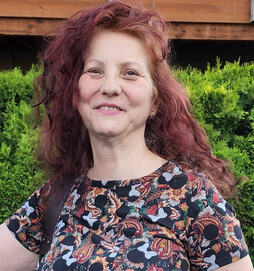 I was born in Romania, as are many providers, and that is where I earned my nursing degree. Shortly after, I escaped the Communists by migrating to Belgium for about a decade. I went back to school in Belgium and France and got two master’s degrees, one in geriatrics and nursing home administration, and another in business administration. I speak Romanian, French, and English. I came to the United States in 1995, and in 1996 I fell into working in an adult care home by accident – a friend begged me to work in his house so he could go on vacation. I agreed and quickly I discovered it feeds my soul. Because Romania is a culture of multi-generational living where we care for our elders, my background made it feel like a natural fit. I love helping people when they most need it, and I found the relationships that would form with the elders very meaningful. Six months later, I opened my first adult care home. I now have three classification 3 homes, and there is nothing else I’d rather be doing. ...this is a chosen lifestyle, not a job; there is total involvement in my business. What do you believe makes adult foster care homes special? If you have to go somewhere else to live, then definitely a smaller environment such as an adult care home makes it easier to meet your needs. Also, this is a chosen lifestyle, not a job; there is total involvement in my business. In this model, there is fluidity and flexibility of the custom-tailored and detail-oriented care, and the real belief in allowing every resident the freedom to make choices - real choices - and the ability to give support in achieving what otherwise would look like dreams. It’s about making residents a part of my extended family. We have a scheduled activity every day, and family members are always invited. We celebrate all holidays. We take people to golf courses, to ride horses, to go swimming, (peer) paragliding, and Harley motorcycle riding to the coast and Mt. Hood. We’ve brought in ponies, llamas, curly mice, professional musicians, and dancers, just to name a few. We try to make it fun, worth living life, and still have exhilarating experiences, even if at a smaller scale and for a shorter time. We are very party friendly and COVID was a big downer, but we still brought in – outdoors of course - music bands, drums, didgeridoo players, cellists, flute bagpipe players, puppeteers, and fireworks. Everyone enjoys the parties and celebrations together. What do you love most about the work you do? Making a difference in people’s lives – I do the heaviest of the care needs. The majority of, if not all my residents would be parked in a nursing home if they were not here with us, but, you know what…we can do better, and we strive for being better every day. We know the residents by name, and they all matter to us. They also know us all by name, even when they forget their children’s names at times because I make every effort to support and care for them each and every day. To me, it is not about physical care, though it often starts with that, it is more about the life we are able to breathe into the lives of residents for the last years/months of their lives. Getting old and dying is a sacred passage, and I feel so privileged and blessed to be part of that journey. If you lead with love, you will enrich the lives of residents and enrich yours even more. What do you believe makes someone's work successful? Love what you do and try to expand your body of knowledge every single day; don’t stop learning, and remain curious. Open your heart to new people, and to new ways of doing things. Try new things and do not stop loving people, experiences, and stories. If you lead with love, you will enrich the lives of residents and enrich yours even more. It is a journey, so find pleasure and joy in it, and you will be so good at it that the money will follow. There is not one success story; the stories are reoccurring. Success stories are when I get all the health care professionals involved to respond to me and work on a comprehensive care plan for a new resident. It occurs when the discharge/admission is orchestrated well. A resident is a person whose life has been entrusted to me, and all that matters is they get the very best of what there is. This is hard work, but it is very rewarding. Remaining in compliance with the state is also a key to success. Do whatever you can to remain in compliance, even if it takes away from other things. What is most gratifying to me is when family members of past residents and former staff still come to participate in celebrations with us. Anything else you'd like us to know about you? When I hire staff, I have very high expectations, and if our team accepts the new staff member, I will then bend over backward to make sure we retain the person. We are a team, and we focus on the details together. I want things done in excess of the rules. I want more and better, and I believe people that stay with me appreciate that striving for excellence. There is pride in this and there is pride in being associated with Alpine House. I add layers of caregivers and outside agencies when or if needed because it takes a village. I do this to avoid burnout. All my staff has the training of a provider, and I recognize their effort and I empower them. Again, this is not a job, it is a lifestyle. I want all people living in the home and working in the home to live life to the fullest. Taking care of seniors is my passion, and I am always expanding on what I know. When I started my first house, people would ask me, “why would you be a caregiver when you can be so many other things with all of your education?” I said it then and still think it today after more than 25 years: it is what you make of it. Like we say in French, “L’auberge Espagnole” (you get out with what you put/bring in). For me, it was and still is a deeply enriching experience and one that has challenged me in more than one aspect, including my humanity and sense of self. In the end, giving feels better than receiving – but then when you give full-heartedly, you will always receive tenfold. You can visit Joana's website: Alpine House Senior Skilled Living
Updated and reposted from March 2019. You’re thinking of opening your own adult care home for seniors and individuals with disabilities. Congratulations! This is an exciting decision. Maybe you’ve worked as a caregiver for several years in an adult care home, assisted living facility, nursing facility, or as an in-home caregiver. Perhaps you've worked as a nurse and would like to take it to the next level and be your own boss. You’ve now decided you’d like to take the next step and become an adult care home provider with your name listed on the license. You most likely feel passionate about caring for seniors and individuals living with disabilities. This is great, though this is not a decision to be made lightly. Owning your own adult care home business and being a caregiver for someone else are two very different experiences with their own unique challenges and benefits. When I started my own business in 2018, I had a vague idea of the level of commitment it would take, but in retrospect, I really had no idea. I consistently work more than I've ever worked before in my life. I haven't taken a true vacation in four years, and I regularly work 12-14 hours per day and work at least six days per week. Like most small business owners, I work a lot, but I also recognize I have the luxury of having some down time because I'm not caring for others. I've heard this same feedback from new providers, as well. They didn't realize how much time owning their own business would take, especially a business where you're providing 24/7 care to other people. Frankly, running a small business is not for everyone. Sometimes the best advice I can give someone is to consider a different path. Often, providers mention they spend a lot of time on business management, rather than solely direct caregiving. If you simply love being a caregiver, you might want to consider remaining a caregiver and working for someone else, but working in a capacity with more responsibility, rather than owning your own business. If you have management and leadership skills, you're highly organized, have strong ethics, and you're business-minded while also passionate about high-quality care, then owing a care home business might be the right move for you. It's an added benefit to have prior experience running a small business. If you're considering this next step in your career path, now is a critical time to reflect on your motivation...while also taking inventory of both your skillset and your understanding of the level of commitment this role entails. If you're considering this next step in your career path, now is a critical time to reflect on your motivation for becoming an adult care home provider, while also taking inventory of both your skillset and your understanding of the level of commitment this role entails. Now is the time for a frank discussion: I’d like to talk about seven reasons to open your own adult care home, and four reasons to not open a care home. Let’s start with four reasons not to open your own adult care home. 1. You're just going to see what happens. Starting any business requires a lot of foundational work. You want to lay a solid foundation on which to build your care home business. Do you have a business plan? Do you have a realistic idea of the money you can make your first year? I've heard a lot of misinformation out there. It's vital to get the correct information and guidance and have a plan before taking the next step. 2. All you see are dollar signs. Sure, you need to make money, as this is a business; however, people who go into this field mainly for the money quickly burn out, or realize the money isn’t worth it. When starting out, you might go months without income while you’re working through the licensing process and finding your first residents. Residents paying privately can pay well, but the Medicaid rate is fairly low with the highest standard Medicaid rate plus room and board at around $3,500/mo. You also have to factor in the cost of your lease or mortgage, insurance, food for a large household, and utilities. You also have the cost to hire and keep good caregivers, as payroll is one of your largest expenses and will run into the thousands of dollars per month. If you've planned well and have made good business decisions along the way, you’ll make a good living, but it's going to be a lot of work. 3. This will be your side business. The State of Oregon and Multnomah County require you, as the licensee, to be involved in the business. Frankly speaking, everything falls on your shoulders. You shouldn’t expect to simply hire a resident manager and take a hands-off approach to your adult foster home business. This work requires direct and ongoing involvement, especially when you're just starting your business. 4. You take issue with government regulation. This adult foster care home industry in Oregon is highly regulated. Let me say that again. This field is highly regulated. Did I mention this is a highly-regulated field? To put this into perspective, not only do you have state or county regulations, but there are both federal and local regulations you must follow as a small business and an adult care home. To top things off, state licensors will show up to your home unannounced, and you might have periodic visits from Adult Protective Services (APS), case managers, and a long-term care ombudsman. If you take issue with government regulation, this might not be the right fit for you. The purpose of mentioning this is not to scare you away from this business, but to make sure you’re going into this business for the right reasons and with a solid plan. I will admit, the reasons not to open a care home are a bit intense, but over the past decade working in adult care homes in several capacities, I’ve seen a lot. The purpose of mentioning this is not to scare you away from this business, but to make sure you’re going into this business for the right reasons and with a solid plan. What are seven reasons you should open your own adult care home? 1. You've done your research and homework. You've gathered the correct information you need to make an informed decision about starting your own care home. You know that you qualify and you know the requirements of the classification for which you'll be applying. You understand the differences between licensing types and State and County requirements. You know the training requirements and have started your training. You know how to market your business and find residents and you have a plan to recruit and train staff. You understand the importance of the home you choose and the role it plays in your business success. You understand the steps in the process and haven't skipped important steps. 2. You have a plan. You're willing to take a risk, but you take calculated risks that are well-planned. You've started a business plan and have a realistic idea of your possible income and have done a cost-benefit analysis of your option(s). You have enough funds saved to weather months where a resident moves out or passes away. You also have a plan, in advance, to find and retain quality care staff. 3. You have a solid idea of the commitment this decision involves. You understand going into this business often requires a complete lifestyle change. You've communicated with other providers to get an idea of their day-to-day experience and understand this is not like a typical job where you can go home and leave work at work. You’re okay with living where you work, and working where you live. Frankly, you’re excited about living in a multi-generational household. You enjoy talking with older individuals and hearing about their amazing life stories. 4. You've taken inventory of your own skills and abilities. You've taken some time to really reflect on your own KSAs (knowledge, skills, and attitude). Are you highly organized? Do you have leadership and management experience? Have you ever recruited or hired staff? Do you have experience supervising staff or have the skills to do so effectively? Have you been responsible for communicating with doctors and overseeing all recordkeeping? Are you a go-getter and a self-starter? Are you good at prioritizing, delegating, and effective time management? Do you have the skills, or willingness to learn, about how to run a small business? 5. You’re an organizational wizard. Following along the lines of number four, the providers who we find are most successful are highly-organized. The Oregon Adult Foster Home Administrative Rules (OARs) and Multnomah County Administrative Rules (MCARs) require you to document practically everything. Are you organized enough to keep resident records, facility records, personnel records, and business/financial records straight, in addition to meeting the care needs of residents? 6. This is your passion and your calling. You know this is what you’re meant to do, whether it's a personal or spiritual calling. Working with older adults and/or individuals living with disabilities brings you immense joy and fulfillment. You feel called to do this work, and you’re committed to helping seniors live in a safe, home-like environment where you help them remain as independent and engaged as possible. You want to provide top-notch care and are willing to go above and beyond to meet the holistic care needs of residents and provide an enriching environment and experience for residents. 7. You’re ready to commit yourself 110% to the business, and everything that entails. You've reflected on, and have completed the previous six steps and are ready to fully commit yourself to the success of your adult care home business. You recognize you don't need to do this alone and can get support along the way. Now is the perfect opportunity to really reflect on your skills, passions, interests, personality, and lifestyle before you make the leap into becoming an adult foster care home owner and licensee. It can be a challenging, yet highly rewarding career, especially if you go into the business for the right reasons and with a solid plan. As the old adage goes, find a job you enjoy doing, and you'll never have to work a day in your life. Your work is going to fill a large part of your life, and the only way to be truly satisfied is to do what you believe is great work, and the only way to do great work is to love what you do. If you haven't found it yet, keep looking and don't settle. As with all matters of the heart, you'll know when you find it." - Steve Jobs
By guest author Alexis Baker, MT-BC with Bridgetown Music Therapy “I think music in itself is healing. It’s an explosive expression of humanity. It’s something we are all touched by. No matter what culture we’re from, everyone loves music.” You may know music is powerful and beneficial to humans, but maybe you are unsure how to utilize it as a meaningful activity in your care home. If so, I’ve got some ideas for you. Music is a wonderful tool for connection and engagement! It’s kind of like a vitamin—a little bit everyday does wonders to nourish the body, mind and soul. Music can be a daily activity for residents, and I’m going to share 7 ways to engage residents through music. #1: SingEven if you don’t describe yourself as a “singer,” we each have a voice and can use it to sing. Did you know the activity of singing has a ton of benefits? In many ways, singing is similar to exercise. It’s an aerobic activity, so it gets more oxygen into the blood leading to better circulation which can cause improved mood. Singing causes the release of endorphins, which give us that wonderful “lifted” feeling often resulting in stress relief. Also, because singing requires deep breathing, a natural result is often reduced anxiety. It's as simple as turning on a song and singing along. Take advantage of free or low-cost resources like YouTube or Spotify. Create a playlist of you and your residents’ favorite tunes to sing together. Learn the lyrics of a few songs together so you can sing a cappella when you aren’t able to conveniently turn on the music. Another more formal way to regularly sing would be for your residents to receive music therapy services. #2: PlayDo you or your residents own any musical instruments? Pull them out and invite them to play. Tell them not to worry about sounding good or playing correctly. They don’t necessarily need to know how to play. Prompt them to start out by exploring the instrument and see what sounds they can make. Instrument play is fun and can provide opportunities for playfulness and self-expression as well as physical movement. Musical instruments can be played on their own or with accompaniment music. Small percussion instruments like maracas are generally easy to pick up and play without any previous knowledge or experience. Just turn on some music, have fun and jam out with the instruments. Some of our favorite older-adult friendly instruments to use include maracas, tambourines, jingle bells, eggs shakers and paddle drums (check out WestMusic.com for quality instruments at reasonable prices). For a couple of more unique instrument options, check out an Easycussion pentatonic xylophone, Suzuki QChord, or an ocean drum. #3: DanceMusic and dance go hand in hand. Because music is a natural motivator for the physical body, most people can easily pick up the rhythm of a song by tapping their toes or bobbing their head to the beat. Sometimes we do this without even thinking! Movement and dance are the body’s natural response to rhythm. So, turn on some music and get dancing with your residents! Choosing songs that are familiar or well-known to residents can be helpful but don’t shy away from exploring new-to-you and different types of music. You never know what new songs or styles you’ll discover. To help get you thinking here are some genres of music you could dance to: big band, jazz, rock’n’roll, folk, bluegrass, country western, classical, rhythm and blues, gospel, pop, Broadway showtunes, soul, funk, disco… Remind residents that while formal dances like the waltz, tango or cha-cha-cha are wonderful, they are not the only way to move the body to music. Suggest to residents they try making up their own moves, or try something simple like swaying, shuffling, or doing seated movement to music. They can try stretching, exercising, or simply doing rhythmic body percussion like clapping, snapping, patting, stomping, kicking, tapping, marching, shaking, waving, etc. It’s a time to get creative and have fun! #4: Listen and ReminisceListening to music can be an enjoyable activity all on its own. Find a playlist the residents living in your care home enjoy, or create a playlist with their favorite songs. Listening to music is an excellent activity for relaxation or brain stimulation. It can be a passive, receptive experience by simply listening. Or, it can be an active, engaging experience by discussing the lyrics and various elements of the music, such as the sound, feel, different instruments involved, etc. There is no right or wrong way to listen to music. Do what feels best and what your residents enjoy most. Listening to music also function as a great accompaniment to other activities such as meal time, physical movement, or doing an art project. One word of caution: beware of over-stimulation using music in this way. Many activities require a great amount of focus, and some types of music can actually lead to the brain having too much to process at once. Try to match the musical energy to the energy level of the activity. Instrumental (or music without lyrics) can work well for times when your residents will need to talk during the activity. Music can also be an amazing catalyst for reminiscence. To start off, choose songs associated with positive, meaningful memories. Observe your residents as you listen together and consider asking a couple questions about that song afterwards. For more info and practical tools, I recommend the book Music, Memory, and Meaning written by a few of my music therapist colleagues! #5: RelaxMusic can be a wonderful tool for relaxation. We all find different types of music calming for us, and the music we find relaxing can change throughout our lives. It’s important for you to consider and choose music that’s calming for your home environment and residents. I use music as a structured space for deep breathing, gentle stretching, guided relaxation, and meditation. There are different techniques for each of these; however, don’t get bogged down in the how-to. Begin by experimenting to see what it’s like using music to assist in relaxation, and then go from there. If you’re at a loss as to what kind of music to play for times of intentional relaxation, try looking up a playlist of the type of music spas use during treatments such as massage therapy. Nature sounds or ambient music can work beautifully to calm mind and body. #6: RecordThis is a simple activity for you and the residents living in the home. It’s a reminder to capture those moments of music making together! With resident authorization, you could use the voice memo app on your phone, your phone’s camera to video record, or write down a special moment in a notebook. This is a great way to share this experience with residents and they can choose to share this with their family members and friends. They will appreciate it, and you’ll be grateful for capturing those special, memorable moments of resident bonding through music. #7: Connect with ProfessionalsTo help support you in providing beneficial music activities for care home residents, Bridgetown Music Therapy has created an engaging online music program for senior care homes. As a licensed and board-certified music therapist, my focus is on improving older adults’ quality of life through the intentional use of music. Our high-quality videos are designed to promote active and engaging experiences that include singing, movement and relaxation. We provide life enrichment through meaningful music activities that are enjoyable, easy to engage with, and effortlessly accessible. Our mission is to spark JOY with engaging music classes for older adults, and we would love to be a part of serving your residents! If you’d like to give Bridgetown Music Therapy a try, click here to get started with your free trial. New content is released weekly! Sometimes we just need to be given permission to try something new. So, I hereby grant you full permission to make music with residents! A Few Tips - sometimes we just need to be given permission to try something new. So, I hereby grant you full permission to make music with residents! Additionally, here are a few tips that might further help you push through any initial discomfort or unfamiliarity:
The benefits of music are abundant and far-reaching. Music can create connections and spark joy. Music is fun and engaging. It’s a natural motivator for the mind and body. Music really makes a difference! Connect with Bridgetown Music Therapy on Facebook and Instagram. Interested in services? Visit Bridgetown Music Therapy to become a member [affiliate link].
We want to continue to highlight the work of our amazing adult foster care home providers in Oregon. Matt Gannon spent some time talking with Margaret Gikaru, RN-BSN, operator of Troutdale Adult Home Care, which is a classification 3 care home in Multnomah County. Please read below to learn more about Margaret. Tell us a bit about your background and what lead you to work in care and service.  My husband and I arrived together in the United States from Kenya in 1995. We flew into Los Angeles with only $70 between us, and I was 9 months pregnant. We started our lives in the United States in California but moved to Seattle, Washington two years later. Being African immigrants, we are used to taking care of our elderly and I helped to take care of my grandma when I was a little girl. We didn’t have nursing homes in Kenya then. When our parents grew old, we’d take care of them. It was a new experience for us when we came to America and realized we could work in care settings to take care of elders. We decided to move from California to Washington because most of our family was in Seattle. I started working as a certified nursing assistant (CNA) and started working in a nursing home in 1997. We recognized that it is easy to get a job as a CNA and raise a family. Within a few weeks, you can be working with a certificate from the state. While raising a family, we found this to be easier than having an office job, especially arriving from Kenya. I then began working in in-home care and was also working at an adult family home. I worked as a CNA for a total of six years. My husband was in a different field before we started this business, mostly in computer software engineering and health information management systems focused on global health. Switching his career to be part of this business was a challenge, but he fit in quite fast, and I value his support. At what point did you decide to become a nurse? I was encouraged by my manager at the time who was a registered nurse (RN) and was the owner of the adult family home I was working in. She encouraged me to go to school to become a licensed practical nurse (LPN). She saw something in me. In fact, she once told me if she ever got ill or needed care, she would want me to be her nurse. After graduating as an LPN, I worked at a home care agency for six years while pursuing my RN degree. After graduation, I continued working for the home care agency. Soon thereafter, I went back to the same school to get my bachelor's degree in nursing, BSN. Soon after graduation, I started working at Valley Medical Hospital, a University of Washington affiliate. I worked there for six years - three of those years were in the intensive care unit (ICU). I worked there up until January of 2021, which was right before starting our Troutdale Adult Home Care business in Oregon. Why are adult foster care homes so special? 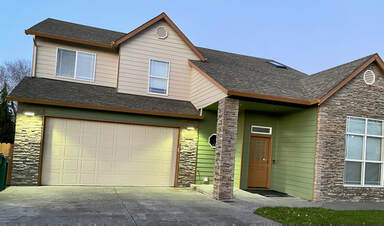 As compared to institutional care, you can care for people in a more person-centered way. For example, regarding a resident's diet, the idea is to create an environment that is as like a family home as possible. Serving only five people we can really tailor the menu to the residents' desires, so this is never a problem. Because it is a home-like setting, we can be more flexible in involving the special and important family and friend connections. We feel it provides better outcomes for the residents in this type of care setting. We have live-in caregivers, and they get to know the residents in a uniquely special way, as compared to many other places where turnover is high and the few caregivers working must care for so many. There is more consistency here, and this is good for everyone. "We feel it provides better outcomes for the residents in this type of care setting." What does nursing add to the overall success of care homes? Because of my experience and training I can move into any high-acuity care situation with a resident and provide the right care to them with confidence, ease, and experience. When giving reports or communicating with the healthcare teams, I understand the language and can interpret important information. This is information such as what to ask and how to use my voice as an advocate, and this can make things so much clearer for everyone. This matters for quality of care. This experience and skill set makes a difference. What do you love most about the work you do? We live where we work. Having the flexibility makes a real difference and I enjoy being my own boss. Countless times in my career my patients or residents have told me they cannot do what I do for people, and they don’t know how I do it. It is in those times I know I am making a difference, and we get to make this difference in our own care home and do this together. "It is in those times I know I am making a difference, and we get to make this difference in our own care home and do this together." Anything else you'd like us to know about you? We have four kids: three boys, and one girl. In this country, there is the old motto from the Army “be all that you can be,” and as immigrants, we feel we are here to achieve our dreams. Now, we are doing just that, and we know we cannot do this where we come from. Also, as immigrants, we are so very grateful to have the opportunities we've had and to create the life for our family that we want. Together, we notice some challenges in this business. Finding caregivers is one of the biggest and we know this is a problem in many different healthcare settings. As a community of care home providers, we do not have a voice yet. We, and some other interested providers, are looking to gather and create a Council of Providers and have a seat at the table at both the state and county level to create necessary changes in the industry. You can reach out to Margaret at [email protected].
By guest author Tory Thompson with Providence ElderPlace. What is Providence ElderPlace PACE, and what is the PACE program? Providence ElderPlace is part of the national PACE: Program of All-inclusive Care for Elders. PACE is both a health insurance and the health care provider. We serve seniors 55 and over who are Medicaid Long-Term Care services eligible (or who want to pay privately). Services go beyond traditional health insurance. For example, ElderPlace PACE includes specialty care, behavioral health care, dental, vision, hearing, and foot care. All of a person’s medications, medical supplies and medical equipment, labs, physical, occupational, speech and recreational therapy are included. PACE insurance has no premium, co-pay or deductible for the senior. How does ElderPlace support residents living in adult care homes? This is done in a variety of ways. First, ElderPlace PACE provides transportation with PACE vans and consistent drivers to all of the resident’s medical appointments. Having a consistent driver allows the driver to learn each resident's preferences and needs. The drivers are considered an important part of the participant's care team. Alternately, virtual visits are available, as well as home visits by a community care licensed nurse. Next, our medical teams specialize in geriatric care, and the residents can also receive palliative care for chronic conditions all the way through the end of their life. In addition, we have master's-level social workers, behavioral health experts and chaplains to support all aspects of a resident's health. It is also important to note: residents on ElderPlace PACE do not have to pay into the state and can keep more personal money each month. What are some of the key ways ElderPlace supports the adult care home providers to help them maintain a better work-life balance?
"ElderPlace helps me manage my residents’ care needs, so I have more time for my family." What are other adult care home providers saying about working with ElderPlace? Providence Elderplace has a long-standing, 30+ year relationship with adult foster care home providers. Some of the feedback we’ve received speaks to how the program can truly be life-changing. Here is some of the feedback we received from providers: “Staff are fast in responding to issues and supplies come on schedule.” “When my residents need more care, ElderPlace works with me to keep them at home and out of the emergency room.” “With ElderPlace I feel like I have a team of professionals backing me up.” “ElderPlace helps me manage my residents’ care needs, so I have more time for my family.” How do care home providers connect with ElderPlace? The Providence ElderPlace PACE service area is Multnomah County, parts of Clackamas county, Washington County, Clatsop and Tillamook counties. To learn about contracting with ElderPlace please call: 503-215-6556. To refer a resident for ElderPlace PACE services call: 503-215-6556. To report a vacancy and get free referrals, send a weekly email to: [email protected]
|
RECENT NEWSLETTERSBLOG Archives
September 2023
|
- About
-
Services
- Coaching or Consultation
- Dementia Care Support Services
- Pre-Purchase Assessment
- Pre-Remodel Inspection
- Open Your Home - Full Support
- Open Your Home - Complete Package
- Open Your Home - Existing Care Home
- Open Your Second Home - Essential Package
- Comprehensive First-Year Support Package
- Pre-Renewal Inspection Service
- Training
- Blog
- Podcast
- Resources
- Contact
About Oregon Care Home ConsultingOregon Care Home Consulting & Training is the compass that helps current and future APD adult foster care home licensees successfully navigate the licensing process and have a successful adult foster care home business. ORCHC provides coaching, consultation, training, and ongoing support. This ultimately saves time, reduces stress, and improves compliance, which allows AFH/ACH licensees to focus more time on providing excellent care to seniors and individuals with disabilities.
|
ContactOffice hours by appointment only
Oregon Care Home Consulting LLC 1500 NW Bethany Blvd., Ste. 200 Beaverton, OR 97006 |
terms_and_conditons.pdf
Disclaimer: Oregon Care Home Consulting LLC is not affiliated with the State of Oregon or Multnomah County Adult Care Home Program (ACHP). We are not State licensors, therefore we are unable to require compliance or guarantee your adult care home is in full compliance with current state and/or federal requirements. State and/or County licensors make the final determination of compliance. Additionally, we are unable to offer legal or medical advice, and no guidance provided by Oregon Care Home Consulting LLC should be construed as legal or medical advice. Always consult an attorney or doctor, when necessary.
HOME | ABOUT | TRAINING | SERVICES | CONTACT | PRIVACY NOTICE | TERMS
Disclaimer: Oregon Care Home Consulting LLC is not affiliated with the State of Oregon or Multnomah County Adult Care Home Program (ACHP). We are not State licensors, therefore we are unable to require compliance or guarantee your adult care home is in full compliance with current state and/or federal requirements. State and/or County licensors make the final determination of compliance. Additionally, we are unable to offer legal or medical advice, and no guidance provided by Oregon Care Home Consulting LLC should be construed as legal or medical advice. Always consult an attorney or doctor, when necessary.
HOME | ABOUT | TRAINING | SERVICES | CONTACT | PRIVACY NOTICE | TERMS
© 2018-2023 OREGON CARE HOME CONSULTING LLC. ALL RIGHTS RESERVED.

